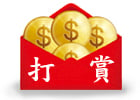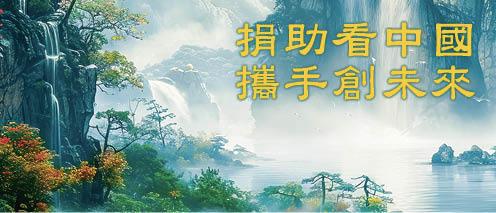洛杉磯時報記者亨力-朱10月1日報導說,當很多人認為你沒有領袖氣質時,你是很難製造個人崇拜的。
這是中國第一號人物,江澤民主席,應該學到的艱難的教訓。儘管他的助手們發動的媒體攻勢會使很多美國政治家們感到羞恥。
他親吻嬰兒,在國宴上賣唱,僱用民意測驗公司調查他做的如何。他將他的照片粉刷在廣告牌和書的封面上。仿效他的偶像般的前兩任,毛澤東和鄧小平,他在相機前游泳以顯示他的活力。
但是對許多中國人來說,76歲的江,仍然是個毫無色彩的人物。
北京的一個老黨員輕蔑地說:「江澤民像個老太婆。」
書獃子長相、戴副眼鏡的江竭盡全力想將自己上升到和中華人民共和國的開國元首毛以及把江從不知何處提拔出來當他的後任的鄧前輩似的中國傳奇人物。
可是儘管掌握著中國所有的重要頭銜,主席、黨書記和軍委主席,江還是遠遠不及他的前兩任人物有權威。作為共產革命的英雄,那兩位以絕對的權威進行統治。
這些天,隨著中國第十六屆黨代表大會,一個五年召開一次的關鍵性的政治會議,即將於11月8日召開,江的領導地位正處在顯微鏡之下。所有的目光都聚集在中國的主席是否將如眾所願下臺還是抓住他的權力不放。
不管他有什麼企圖,毫無疑問地,江和他的支持者們多年來一直試圖通過富於進攻性的公關運動擦亮他的形象,其中包括頻繁地與世界各國的首腦們會面進而在相機下曝光,例如,這個月即將在美國總統布希的德州莊園裡,他無疑會再這麼做。
江對他公共形象的關心,有些人稱為痴狂,不是簡單地虛榮心所致,儘管那些見過他的人說他似乎充滿虛榮。據分析家們說,這還是一種政治手腕,這是他在過去的十年內為鞏固他的地位和保證他在11月份下臺之後仍具影響力做出的廣泛努力的一部分。
*新的懷疑
江沒有毛或鄧那樣的門第。同時,20年速度快到危險的社會和經濟的變化產生了一群受到較好教育、前所未有地機巧並敢於懷疑的中國人群,他們對外界的影響和信息是開放的。這群人中的一部分對不是經選舉產生的領導人毫無奉承之意。
於是,江採用猛烈的媒體攻勢,試圖樹立他為公眾眼中的一個合法的權力繼承人。
觀察家們說,江在樹立他的形象方面投入的時間和精力比其他的中國領導人都多。他甚至在1997年秘密地僱用一家公關公司去調查人們對他在主持香港回歸中的表現看法如何。
北京一家獨立民意測驗公司曾經調查過民眾對政府的看法。這家公司的創建者威克特-袁(音)說,「我想這是個新情況。在美國,政治家們至少在表面上會說他們會盡力讓公眾滿意。在(中國)這兒,人民沒有選舉權,他們仍舊[只能]聽從他們的領導者。但是,那些領導者開始想一想公眾的意見了。」
此種觀點對一個逃脫對公眾的責任的體制的影響仍是極其有限的。在中國,權力的轉換仍然是在共產黨的幕後交易、嚴格的政治控制和其他非民主的手段下進行的。
但是現在的政權一直將它合法性的賭注下在有能力將繁榮代給它13億民眾,和將中國推向世界舞臺。民眾的觀點已不可能被抹殺了,即使並不是開啟權力的直接鑰匙。
當年毛或鄧統治的時候,無論他的政策的結果如何,他都是毫無疑問的領袖。但是這種日子已經過去了。
毛被尊稱為「偉大的舵手」,儘管他犯下了災難性的錯誤,例如,50年代的合作化運動「大躍進」期間多達3千萬人民死於飢荒,還有混亂的1966-76的「文化大革命」。
鄧在1989年天安門大屠殺期間和之後也仍然是「最高領袖」。儘管在他臨死前,除了是一個慈善機構和中國橋牌協會的榮譽主席外,他沒有正式頭銜。
而江是個小心的技術官僚,並不是個令人興奮的革命家或有遠見的人。他的政治資本來自於一個上海大學和一家蘇聯汽車廠,而並不是傳奇式的30年代的長征,這個具有決定性意義的事件產生了中華人民共和國早期的領導人。
自從鄧在天安門屠殺事件後立即將他點名為黨主席後,他只好用狡猾的政治手腕去擊敗他的競爭對手。
他的助手們努力地將江塑造成一個跟隨時代的現代派,一個進步思想家,將共產主義擴大到不僅包括工人和農民,而且包括中國新的精英們:很小但逐漸具有影響力的中產階級,專業人士,知識份子和企業家們。
江的命名尷尬、某種程度上令人糊塗的政治哲學---「三個代表」,被廣泛認為是一種邀請這些逐漸增長的精英們加入共產黨的企圖。
一個曾經向政府作過諮詢並不願透露身份的公關顧問說,「他想取悅所有的人。」
江的一些試圖鞏固繼承權力的資格的做法是令人難堪的笨。幾年前,一家報紙刊登了當年毛和鄧閱讀人民日報-共產黨的喉舌-的照片。第三張是江裝腔作式地模仿他們的照片。
他對他形象的重視甚至決定了他的著服。在1999年中國慶祝共產黨統治50週年的北京市區大遊行中,江是高高的看台上唯一的一個穿著毛式衣服的領導者。其他的官員都穿著西式服裝。當扯著毛、鄧和江的巨幅相片的遊行隊伍經過時,他們面色嚴峻地鼓著掌。
也許多於任何其他的義務,江還試圖享受成為世界政治家的滋味,並極力地在這方面表現。被數以億計的觀眾觀看的國家晚間新聞節目中,幾乎每晚都播放有關江周遊各國或者是在北京接受來自一些小的、貧窮的、大部分中國人從來都沒聽說過的國家的晉見的錄像。
攝像機還跟蹤他精心佈置好的在群眾中走動的場景。他會拍拍他們的身體,將嬰兒放在他的膝蓋上玩耍,以表示他是位像平凡的周[恩來]一樣大善人的領導。
但結果並不總是鼓舞人心。
*嘲笑和冷淡
許多中國人認為江看起來可笑並且像個騙子,他遇到高職位的外國人士時他的英語會脫口而出,或者是放縱他的自認為很有魅力的嗜好,就是獻媚式地給他們唱幾個中國歌劇的片段。
別人甚至不屑於恥笑的「三個代表」被江在黨代會上極力地遊說寫入共產黨的章程中。這將會保證他對中國未來的影響會持續。
對年輕人的一個調查中發現只有百分之十一的人能夠列出「三個代表」中的其中的一個代表。諷刺者們說這「三個代表」應該在黨章中以「江澤民意見」為標題下和「毛澤東思想」、「鄧小平理論」一樣被供起來。
波士頓大學的中國政治問題專家約瑟夫-菲爾史密斯(Joseph Fewsmith) 說:「我不認為江是個特別受歡迎的領導者。我認為公眾和領導階層存在實質的鴻溝:公眾更關心如何謀生;而領導階層仍舊認為黨制和思想控制很重要。」
但是,江缺乏毛的魅力。而且儘管他忙碌的助手們的最佳努力,許多人還是不將他視為像鄧一樣具有開拓性。江只是沿用了鄧提出的市場經濟改革。
「除非他一直確定他的下一個舉動,他基本上沒有動。這使他的執政顯得非常平庸,因為他並沒有有力或有遠見的領導。」菲爾史密斯說:「但這幫助他保持權力。」
===================================
原文:
China's Leader Campaigning for Cult Status
Politics: The president wants people to say 'Jiang' with the same reverence as 'Mao' and 'Deng.' The trouble is, he's just not exciting.
By HENRY CHU , LA TIMES STAFF WRITER
BEIJING -- It's hard to create a cult of personality when so many people think you don't have one.
That's the tough lesson China's No. 1 leader, President Jiang Zemin, has learned, despite a media offensive by his handlers that would put many U.S. politicians to shame.
He kisses babies, sings at state banquets and hires pollsters to tell him how he's doing. His face is plastered on billboards and book covers. Like his two iconic predecessors, Mao Tse-tung and Deng Xiaoping, he goes swimming for the cameras to demonstrate his vigor.
But to many Chinese, Jiang, 76, still cuts a colorless figure.
"Jiang Zemin is like an old lady," one veteran Communist Party member in Beijing said disdainfully.
By all accounts, the bespectacled, bookish-looking Jiang is desperate to be elevated into the Chinese pantheon alongside Mao, the founder of the People's Republic, and Deng, the mentor who plucked Jiang almost out of nowhere to be his successor.
Yet despite holding all the most important titles in China─president, party secretary and head of the military─Jiang is far less powerful than the two men before him, who ruled with absolute authority based on their status as heroes of the Communist revolution.
These days, Jiang's leadership is under the microscope as China gears up for its 16th Communist Party Congress, a crucial political gathering held every five years and due to begin Nov. 8. All eyes are fixed on the Chinese president to see whether he will step down from his post of party chief, as widely expected, or hang on to power.
Whatever his intentions, there is no question that Jiang and his supporters have been trying for years to burnish his image through an aggressive public-relations campaign, including frequent photo ops with world leaders such as the one he will no doubt participate in with President Bush at the American leader's Texas ranch this month.
Jiang's concern─some call it an obsession─about his public persona is not simply a function of vanity, although those who have met him say there seems no shortage of that. It is also, analysts say, a political ploy, part of a wider effort over the last decade to strengthen his position and ensure that his influence endures even if he steps down in November.
New Skepticism in Air
Jiang doesn't boast the pedigree of Mao or Deng. At the same time, 20 years of breakneck social and economic change have given rise to a better-educated, more sophisticated and more skeptical Chinese populace than ever before, open to outside influences and information─some of it highly unflattering to its unelected leaders.
Hence Jiang's unrelenting media blitz, which aims to establish him firmly in the public's eyes as the rightful heir to the throne.
Jiang, observers say, has spent more time and effort cultivating his image than other Chinese leaders, going so far as to discreetly hire a PR firm back in 1997 to find out how people rated his performance in presiding over Hong Kong's return to Beijing's control.
"I think it's a new situation," said Victor Yuan, the founder of an independent polling firm in Beijing that has researched popular attitudes about government. "In the U.S., politicians, at least on the face of it, say they try to please the public. Here, people are not voters; they still [can only] listen to their leaders. But those leaders are starting to think about public opinion."
Such opinion still has extremely limited impact on a system that eschews public accountability. Power in China continues to flow mainly from back-room deals, tight political control and other undemocratic practices by the Communist Party.
But the current regime has staked its legitimacy on its ability to deliver prosperity to the nation's 1.3 billion people and to turn China into a major player on the world stage. Popular opinion can no longer be written off, even if it's not yet the direct key to power.
Gone are the days when Mao or Deng could remain the unquestioned ruler of China whatever the results of his policies.
Mao was revered as the Great Helmsman despite disastrous mistakes such as the Great Leap Forward of the 1950s─a collectivization program in which a staggering 30 million people died of starvation─and the anarchic 1966-76 Cultural Revolution.
Deng, too, remained "paramount leader" through and after the 1989 Tiananmen Square massacre, although he held no formal titles by the time of his death except honorary president of a charity and of China's Bridge Assn.
Jiang is a cautious technocrat, not an inspirational revolutionary or visionary. His political credentials come from a Shanghai university and a Soviet car factory, not the legendary Long March of the 1930s, the crucible that yielded the early leaders of the People's Republic.
He has had to rely instead on astute political maneuvering to knock off his rivals ever since Deng anointed him party chief right after the Tiananmen Square massacre.
His handlers have striven to portray Jiang as a modernizer in tune with the times, a progressive thinker who wants to broaden the Communist Party to include not just its traditional base of peasants and workers but China's new elites: its small but increasingly influential middle class, its professionals and intellectuals, and its entrepreneurs.
Jiang's awkwardly named and somewhat confusing political philosophy, the "Three Represents," is widely seen as an attempt to co-opt these growing elites by inviting them to join the party.
"He tries to please everybody," said one public-relations consultant who has advised the government and asked not to be identified. Some of Jiang's attempts to drive home his right of succession have been embarrassingly ham-handed. One newspaper article a few years ago featured photos of Mao and Deng reading the People's Daily, the party mouthpiece. A third picture showed Jiang mimicking them almost down to the pose.
His emphasis on image even dictates his choice of clothes. When the country celebrated 50 years of Communist rule in 1999 with a massive parade through downtown Beijing, Jiang was the only one of China's leaders up on the viewing platform wearing a Mao suit. The others wore Western dress and clapped stonily as marchers went by hoisting huge pictures of Mao, Deng and Jiang.
Perhaps more than any other of his duties, Jiang relishes his role as a world statesman─and plays it up as much as possible. The national evening newscast, seen by hundreds of millions of viewers, airs almost nightly footage of Jiang trotting the globe or receiving tribute in Beijing from small, poor countries that most Chinese have never heard of.
The cameras also track him on highly staged walkabouts among ordinary Chinese, whose flesh he presses and infants he dandles on his knee to show himself a beneficent leader in touch with the average Zhou.
But the results aren't always encouraging.
Ridicule and Apathy
Many Chinese think Jiang looks ridiculous and sycophantic bursting into English for foreign dignitaries or indulging his habit, which he apparently thinks charming, of serenading them with snatches of Chinese opera.
Others find it hard to care even enough to poke fun at the "Three Represents," which he is lobbying hard to have written into the Communist Party charter at the party congress. This would guarantee that his influence on China's direction would continue.
A survey of young people found that only 11% could name even one of the "represents." Scoffers say the philosophy should be enshrined in the party charter, alongside "Mao Tse-tung Thought" and "Deng Xiaoping Theory," under the heading "Jiang Zemin's Opinions."
"I don't see Jiang as a particularly popular leader," said Joseph Fewsmith, an expert on Chinese politics at Boston University. "I think there is a real disconnect between the public, which is more interested in making a living, and the leadership, where party mechanisms and control over ideology remain important."
But Jiang lacks the charisma of Mao. And despite the best efforts of his spin doctors, many still do not see him as path-breaking like Deng, who instituted the market-oriented reforms he continued.
"Unless he has been sure of his next move, he has generally not moved. This has given his administration a lackluster character because he is not associated with forceful or visionary leadership," Fewsmith said. "But it has helped him stay in power."
===================================
(大紀元)(文章僅代表作者個人立場和觀點)
短网址: 版權所有,任何形式轉載需本站授權許可。 嚴禁建立鏡像網站。
【誠徵榮譽會員】溪流能夠匯成大海,小善可以成就大愛。我們向全球華人誠意徵集萬名榮譽會員:每位榮譽會員每年只需支付一份訂閱費用,成為《看中國》網站的榮譽會員,就可以助力我們突破審查與封鎖,向至少10000位中國大陸同胞奉上獨立真實的關鍵資訊, 在危難時刻向他們發出預警,救他們於大瘟疫與其它社會危難之中。









